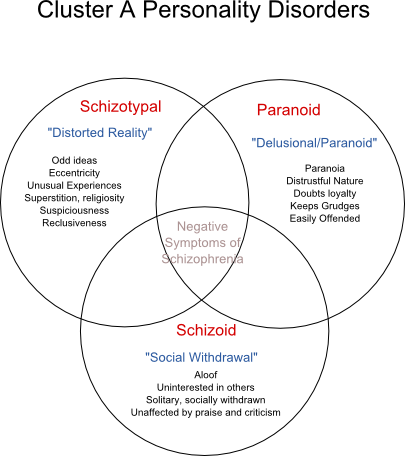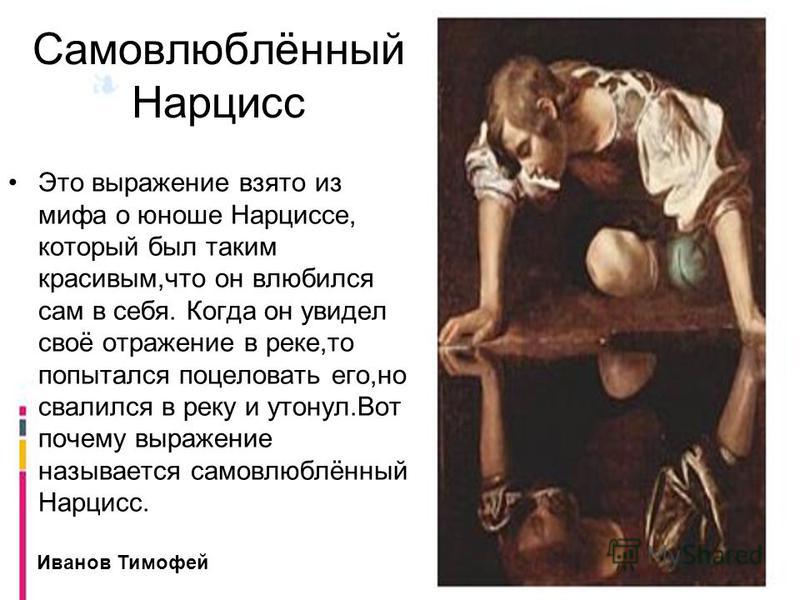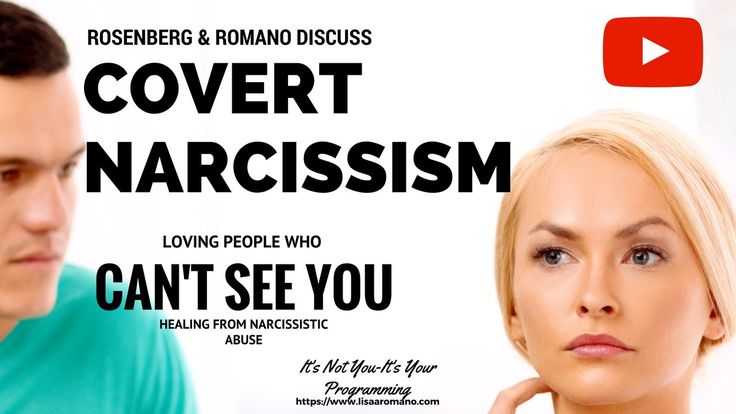Can i see two therapists at once
How to Work with Two Therapists
Amanda Gregory, LCPC, EMDR
Many people have benefited from receiving concurrent mental health services from two therapists. Each therapist may provide a different service such as individual therapy, couples therapy, or group therapy. For example, you might see one therapist for individual therapy and another therapist for couples therapy. You could also work with two therapists who provide the same service but vastly different focuses and/or interventions, such as Financial Therapy or Eye Movement Desensitization and Reprocessing (EMDR). For example, you could see one therapist for individual therapy that provides financial therapy and another therapist for individual therapy that provides EMDR.
Working with two therapists can be tricky at times. Here are a few things to keep in mind when working with two therapists.
Ask your therapists to communicate with each other. If you work with two therapists it’s in your best interest that they communicate with each other. This coordination helps your therapists plan your treatment and diminish any confusion or harm that could occur when working with two professionals at the same time. You will need to sign a release before any type of communication can occur. A release is a document provided by your therapists that allows them to communicate with others about your treatment. Without a release, your therapists cannot communicate with anyone about you or even acknowledge your existence.
When asking your therapists to communicate with each other you should be specific about what you’d like them to discuss. You might want one therapist whom you’ve been working with for a while to discuss your progress, obstacles in treatment, complicated family dynamic, trauma history, etc. You might also want your therapists to coordinate with each other in order to verify that they are not providing the same service and/or interventions. If there is anything that you do not want a therapist to discuss you should make it known when signing a release.
Find out how much therapy will cost. Picture this: you’re working with two therapists and you’re making great progress. However, you have to stop seeing one or both therapists because you didn’t realize the cost and cannot afford to continue treatment. So, it’s important to determine your out-of-pocket cost at the start of treatment. Will your insurance cover multiple therapeutic services? For example, you might attend couples and individual therapy weekly. Will your insurance pay for the same therapeutic service provided by two different therapists? For example, you may attend individual therapy focused on financial therapy weekly and individual therapy focused on EMDR weekly. If you’re planning to use insurance benefits you should contact your insurance company to verify that they will cover services. In addition, even if services are covered by insurance, copays and co-insurance can add up quickly. Make sure that you know what your contribution is before you consider working with two therapists.
Discuss conflicts. One therapist might suggest one thing and another might suggest the opposite. This can occur when working with two therapists whose interventions and/or services overlap. Therapists can prevent this with good treatment planning and communication– but at times it sill occurs. If you notice any contradictions, it’s best to discuss them openly with your therapists. For example, you could say, “You’re telling me to use coping skills when I feel anxious but my other therapist says to notice and accept anxiety. I’m confused about what to do.” This can provide you with an opportunity to get clarification and, if necessary, will allow your therapists to increase their coordinate with each other in order to support your treatment.
Many clients have benefited from working with two therapists. If you feel you could benefit from working with another therapist, talk to your current therapist about further treatment options.
Symmetry Counseling provides all of the services and interventions mentioned in this blog. If you could benefit from any of these services or interventions contact Symmetry Counseling today to schedule an appointment.
If you could benefit from any of these services or interventions contact Symmetry Counseling today to schedule an appointment.
Can People Have Two Therapists? — Ramona K Clifton, LCSW, CPC
June 25, 2014
“Can people have two therapists?”
This question was put to me by a client during the final minutes of a session. I thought about it for a few seconds and said “I think that deserves a conversation, can we talk about it next time?” I told her that the short answer is that it’s not usually advised, but I didn’t want to just say that without thinking it through. I wanted to know what she’s looking for. We agreed to pick up on it next session.
After that, it weighed on my mind. I know from ethics workshops and discussions with colleagues that most therapists would advise against it. I know for myself that I would only be comfortable in very specific circumstances. Perhaps if our modalities were clearly defined and very different, such as if she wanted to see a Reiki practioner, an EMDR specialist or a health counselor for nutrition. But to have two “talk therapists”, I doubt that would be the best way a person is served – but why not?
But to have two “talk therapists”, I doubt that would be the best way a person is served – but why not?
Turns out it’s pretty easy to find resources and articles that say no, it’s not recommended. The reasons given (often by therapists) include splitting, conflicting treatment plans, creating secrets (especially if they aren’t aware of each other or aren’t in communication). One blog called Jung at Heart has some good points, and interesting responses in the comments section.
http://www.jung-at-heart.com/jung_at_heart/two-therapists----a-matter.html
I saw a comment on another site by a client who wants to have two, saying if a therapist insists on being 'the only one', “It seems to me this keeps the whole therapy-as-mystery and power imbalance going". That doesn't sound like a good experience of therapy, but it's not a good therapist's agenda.
I found other people who advocate having two therapists as a way to get more perspectives and advice, to have more to choose from. This might be true, but could get confusing, as it could dilute each therapist’s ability to create a plan, goals and accountability with that client.
This might be true, but could get confusing, as it could dilute each therapist’s ability to create a plan, goals and accountability with that client.
As I try to be open to the idea and imagine scenarios and possibilities, I do keep returning to the place of “probably not the best idea”. Though I'm skeptical, I wanted to honor her question with a discussion, and explore the needs that are behind it.
I considered why she asked… the thought crossed my mind “I’m not doing enough, I’m not providing enough or giving her what she wants”. The implication from someone who asks about two could be that they’re looking for more from their sessions. But it doesn’t mean I was doing a terrible job, and I don’t think she meant to indicate that. Her tone seemed to have more to do with feeling impatient for change – not just in therapy, but in her life. (She is a very talented young woman who is involved in several fields at once, and had some success in each area, but wasn't fulfilled. She'd like to be a superstar. ) Perhaps her desire to have multiple therapists mirrored that sense of needing it all to happen at once.
) Perhaps her desire to have multiple therapists mirrored that sense of needing it all to happen at once.
I think the concerns about “splitting” are valid – it could to set up a “you said/they said” dynamic -- if one therapist’s suggestion or plan is somehow at odds with the other therapist’s recommendation, it would set them up against each other – a classic splitting of parents, being recreated. Even if therapists had permission to speak to each other to try coordinating care, it's probably not realistic to have them in contact on a regular basis. Would the client share what issues they were speaking about in other sessions? If not, what would be missed?
It doesn't sound realistic to “focus on separate issues with each one”, as a comment on an article suggested - in my experience, people are not that compartmentalized. Issues such as happiness in the relationship, fulfillment at work, time management and self esteem or family history are often intertwined.
When goal setting and homework is planned, would the client be able to manage the extra "assignments"?
One therapist posted in a comments section on this topic that “Even if you have six therapists you still won't get every possible perspective, you'll inevitably be missing out on insights that someone else could offer you”, which I think is true. If someone has a desire to get other viewpoints, this quest can actually get in the way of making clear choices. People can get caught up in "information-gathering" and actually delay their choices that way.
If someone has a desire to get other viewpoints, this quest can actually get in the way of making clear choices. People can get caught up in "information-gathering" and actually delay their choices that way.
So, I raised the subject at the beginning of the next session, and thanked her for asking a compelling question. She responded that she'd realized it's not the way she wants to do things. We used it as an opportunity to talk about our process and what she wanted to get out of our time together. Having two therapists was no longer on her agenda, but it helped bring new considerations in our session, and was also a thought-provoking idea for my practice.
I welcome responses and ideas - would it ever be useful to have two (or more!) therapists?
Gratitude and a gift in a therapeutic relationship //Psychological newspaper
I found the most important and essential words about gratitude for me in the works of the Russian philosopher Ivan Ilyin. He writes: “. .. in order to find a way to renew, deepen and inspire their culture, mankind must learn to give thanks and build their spiritual life on gratitude.
.. in order to find a way to renew, deepen and inspire their culture, mankind must learn to give thanks and build their spiritual life on gratitude.
To be grateful means to appreciate what is given; see your natural and spiritual riches; extract from your inner world what is in it. To create, create and improve, not to own, dispose and enjoy.
Every moment seems to test us whether we are ripe for gratitude and whether we know how to give thanks.
Gifts are not given to us for life's use or abuse, but for study, interpretation, wonder, and joy. And these are the gifts that we could accept: space, time, living matter, mental abilities, spiritual powers.
What is gratitude? This is the answer of a living, loving heart to the beneficence rendered to it. It reciprocates love for love, joy for kindness. This joy flares up by itself, freely, naturally, and leads love - free and sincere.
A person accepts a gift and rejoices not only in the received gift, but also in the kindness of the giver. His love and His being and, finally, the fact that this kindness awakens love in the soul of the most gifted. A gift is a ray that requires reciprocal radiation. He addresses at once - both to the heart and to the will. The will decides; she wants to respond and begins to act; and this action renews life with love and kindness.
His love and His being and, finally, the fact that this kindness awakens love in the soul of the most gifted. A gift is a ray that requires reciprocal radiation. He addresses at once - both to the heart and to the will. The will decides; she wants to respond and begins to act; and this action renews life with love and kindness.
When a person sees the inexhaustible gifts of God in front of him, then very soon a feeling arises in him that he will never be able to fully respond to this inexhaustible goodness ... therefore, those who, having spent their lives in contemplation and thanksgiving, end it with a prayer: “ Forgive me, Lord, that I did not have enough love and joy in order to love you above all and rejoice in Your creations ”...
Gratitude is, to a greater extent, the answer "yes" to reality, what is happening, life. In this answer - the acceptance by a person of those events, people, conditions, sometimes difficult, that were sent to him. Feeling gratitude is characteristic of someone who has worked hard, suffered, knows the differences, appreciates life.
What is the place of gratitude in therapy? There is a widespread point of view that gratitude is present at the last stage of therapy, being one of the indicators of its effectiveness. Agreeing with her, I would like to suggest focusing on the quality of gratitude - ingratitude not only as a characteristic of the result, but to consider it as an essence that, manifesting itself in one form or another and degree, accompanies the therapeutic relationship constantly from the very beginning to its completion. In my view, the therapeutic relationship itself is a place where both the client and the therapist have the opportunity to become more grateful.
The therapist needs to have an idea of his ability to be grateful. Such an idea is formed, among other things, thanks to his personal therapy and supervision. It is believed that giving is a moral behavior inherent in helping professions. But this ability alone is not enough. The ability to give unselfishly is mirrored with the ability to receive with gratitude. If there is no ability to accept, gratitude, among other things, one can doubt the selflessness of the helper. When the therapist is deprived or limited in the ability to accept with gratitude, this also limits his ability to help the client.
If there is no ability to accept, gratitude, among other things, one can doubt the selflessness of the helper. When the therapist is deprived or limited in the ability to accept with gratitude, this also limits his ability to help the client.
In my opinion, from the very first meeting, in the perspective of understanding the client, it is important to keep a number of questions, trying to answer them: how grateful or ungrateful is the client entering therapy at the moment; what, in my opinion, are the prospects for the development of this quality in him.
Most often, at the moment of coming to the therapist, the client is separated from his feelings of gratitude. It is difficult for him to accept the situation in which he now lives; he is in conflict with people, out of tune with himself; experiences more feelings that can be summarized with the word "no" - irritation, anger, resentment, anger, etc. The client may be incapable of gratitude situationally, in a given period of life. A negative perception of the world as a whole may be more characteristic of its character.
A negative perception of the world as a whole may be more characteristic of its character.
Indeed, the ability to experience and express gratitude is associated with the most powerful experience at the beginning of life, in relationships with parents. Among the most ungrateful clients are those in whose experiences there is a lack of parental care and attention, and those who can be called spoiled or overprotective. It is difficult for both of them to be grateful and accepting. The history of the client, the context of his life, will gradually take their place in therapy. Much will become clear, something will change. In therapy itself, it is very important to explore the topic of how the client is able to give and receive. “To be an adult is to give. All of us, sooner or later, turn from the one who receives into the one who gives. A client can go a long way with a therapist before they grow up to be able to share, to give. A lot has to take place, a lot has to be brought in first by the therapist, in order to create the atmosphere of trust necessary for the processes of change.
At the beginning of therapy, it is important for me, from the point of view of the grace of the situation, to assess the client's motivation. A potentially more ungrateful customer is one with weak or conflicting motivations. In society, therapy is treated differently. Among our clients there are also those who, a priori, partially have negative beliefs about therapy. “Will they help, is it not a waste of money, you have to cope with your difficulties yourself,” such questions and assumptions from clients make therapy a dubious business for them, and not at all good. And yet, with such an ambivalent attitude towards therapy, they are in our office. For me, in the case of such an ambiguous choice of the client to “come”, it is important to notice this ambivalence. Then stay together with the client in it for a certain time, sufficient for the client to stay or leave, realizing his own choice.
It is natural to be ingratitude for "gifts" that are not needed. The difference in the ideas of the client and the therapist about therapeutic goals, about the depth and duration of therapy makes therapy not a good deed, but rather doubtful, and causes quite natural resistance of the client.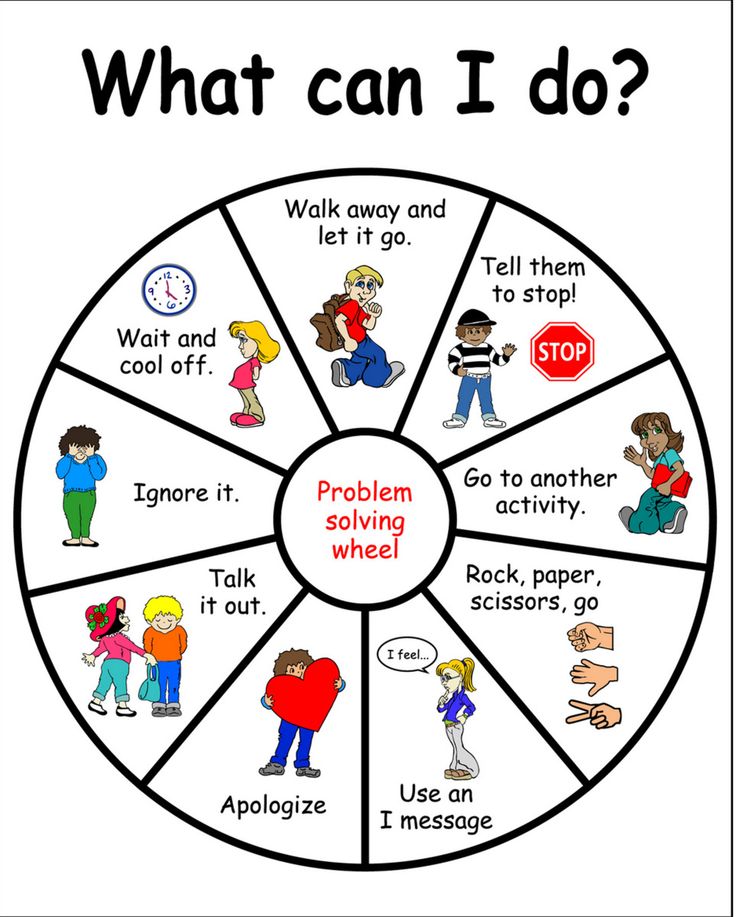 Even with the “noble” motivation of the therapist, it is precisely in such cases that they say that “the road to hell is paved with good intentions.” Colleagues self-sneer about the cases when therapists show more activity than clients at work, explaining them with a “desire to do good.”
Even with the “noble” motivation of the therapist, it is precisely in such cases that they say that “the road to hell is paved with good intentions.” Colleagues self-sneer about the cases when therapists show more activity than clients at work, explaining them with a “desire to do good.”
It makes sense to be open about the client's resistance. Resistance, among other things, may indicate some kind of our professional incompetence, mistakes or shortcomings in therapy. Sometimes resistance accompanies situations that can be summarized with the phrases “not the time”, “not the place”. It testifies to a discrepancy, to small points of contact between the world of the client and this therapist. In any case, a reluctant client can sometimes be perceived by therapists as ungrateful. The difficulty of a person who comes to us often lies in the fact that he does not know how to accept help, cannot be in a relationship, becoming most often “ungrateful”. To accept resistance, "ungratefulness" of the client means to see discrepancies, discrepancies with the client. To see, to stop, to try to pass through the space of discord. It is important to use this difference in order to openly and adequately create real relationships in therapy through the “here-and-now” work.
To see, to stop, to try to pass through the space of discord. It is important to use this difference in order to openly and adequately create real relationships in therapy through the “here-and-now” work.
Philosopher Vladimir Yankevich draws our attention to gratitude as a phenomenon that belongs to secondary categories. “Gratitude is born under the condition that there is both a benefactor and a beneficence - and only under this condition ...” With regard to existential therapy, the relationship that arises between therapist and client can be gracious; are created, first more by the therapist, and then by both participants in this process. It is the relationship, not the therapist alone, that is the source of grace, the good deed. Relationships, like gratitude itself, for me are both a goal and a means in therapy at the same time.
I heard more than once at the seminars of A.E. Alekseychik from himself that "a grateful client is treated faster." I see the point for the therapist: with each client, ask yourself the question - how to help this particular client be a little more grateful?
As for me, in answering this question, in my work with some clients I saw the importance of summing up intermediate results. Help to notice the results, rejoice, albeit small, but successes; Consistently, without false modesty, but in proportion to what is happening, to celebrate these common successes myself - I consider it especially important with clients who are pessimistic in nature. Not so easy and not at all quickly, some of our clients manage to break the habit of losing what has been achieved, forgetting the good, devaluing the significant. If the process of devaluing the results of therapy does take place, it is important to note this and help the client "become a better witness of his own behavior and learn to appreciate the influence of his behavior on the feelings of others" (A.E. Alekseichik).
Help to notice the results, rejoice, albeit small, but successes; Consistently, without false modesty, but in proportion to what is happening, to celebrate these common successes myself - I consider it especially important with clients who are pessimistic in nature. Not so easy and not at all quickly, some of our clients manage to break the habit of losing what has been achieved, forgetting the good, devaluing the significant. If the process of devaluing the results of therapy does take place, it is important to note this and help the client "become a better witness of his own behavior and learn to appreciate the influence of his behavior on the feelings of others" (A.E. Alekseichik).
In addition to the direction to return lost results, I see a way to gratitude through the discovery of new, more positive meanings. I witnessed how Emmy Van Derzen masterfully implements this at her seminars. During the demonstration sessions, the moment of the client's transition from the state of experiencing his difficulty as something foreign, alien, condemned to the state of its acceptance was significant for me. This acceptance of the difficult was due to the discovery of a new aspect of the meaning of the situation. In gratitude itself there is a lot of energy of acceptance. Therefore, in my opinion, the very phenomenon of the transition from “no” to “yes” is very important. And the experience of such transitions helps the client to be more grateful. Through gratitude, the client leaves behind, in the past, envy, anger, resentment. A person who has such experience of transition and change in the present can say that "everything is for the better."
This acceptance of the difficult was due to the discovery of a new aspect of the meaning of the situation. In gratitude itself there is a lot of energy of acceptance. Therefore, in my opinion, the very phenomenon of the transition from “no” to “yes” is very important. And the experience of such transitions helps the client to be more grateful. Through gratitude, the client leaves behind, in the past, envy, anger, resentment. A person who has such experience of transition and change in the present can say that "everything is for the better."
Is the path to gratitude through a gift? In a therapeutic relationship, a gift does not always equal gratitude. Moreover, it may indicate difficulties, ambiguities in the therapeutic relationship, or their absence at all. Let's consider some of these cases. What meanings can a gift have besides gratitude?
The client gives a gift to the therapist largely because it is customary. And such a gift is reminiscent of a typical situation in the relationship between the client and the patient in the medical model: the doctor is supposed to give something, because.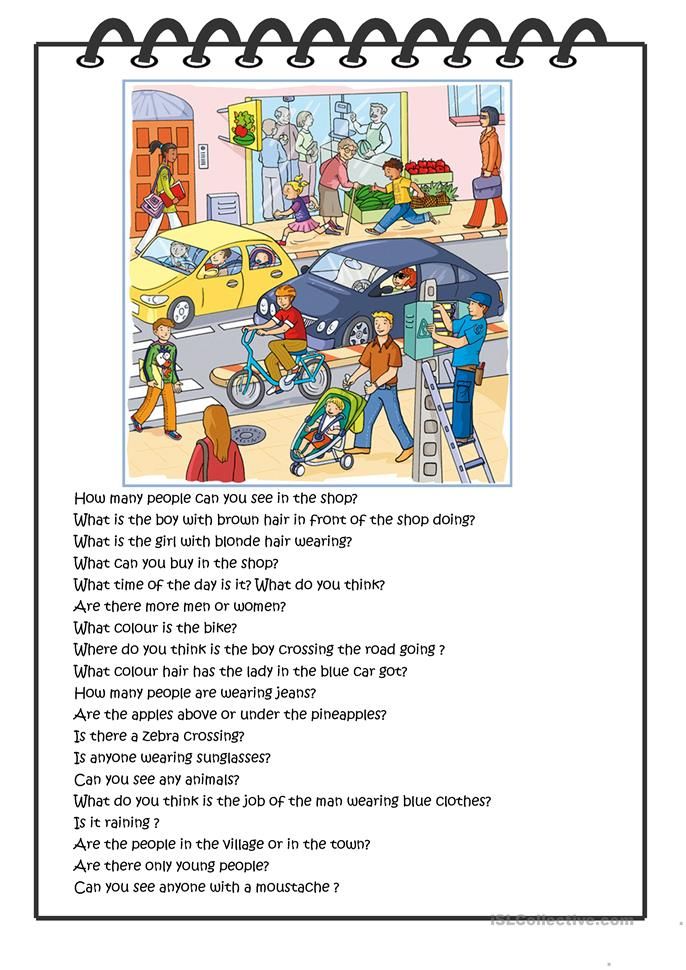 he is an important person in this period of life; doctors have a small salary and it is necessary to support them, thus restoring justice. Such gifts are typical for socialized clients, who often act stereotypically. I recall the expression where gifts are compared with good advice, which bring more joy to the giver of advice than to the person who receives it (Edouard Herriot). However, it is important to note that clients show by these gifts that they include the therapist in a circle of important and pleasant people for themselves.
he is an important person in this period of life; doctors have a small salary and it is necessary to support them, thus restoring justice. Such gifts are typical for socialized clients, who often act stereotypically. I recall the expression where gifts are compared with good advice, which bring more joy to the giver of advice than to the person who receives it (Edouard Herriot). However, it is important to note that clients show by these gifts that they include the therapist in a circle of important and pleasant people for themselves.
In institutions that provide free counseling, there are often gifts that, in my opinion, have little to do with gratitude. When I worked in such a center, at the end of the first consultation, the client could get not only a box of chocolates, but also cottage cheese with sour cream, which he himself made. The words accompanying these gifts were something like this: "But you consulted for free, somehow uncomfortable." For me, this was an occasion for an open conversation about the possibility of paid consultations in my private practice. Some clients happily switched to more acceptable and clear contractual relations for them. Other clients openly expressed their concern behind the gift, asking if the quality of free work differs from paid consultations. Distrust, doubts were covered with a certain gift. By accepting such a gift without clarification, the therapist would support the client's feelings. An open dialogue about the conditions and possibilities of therapy frees therapy from superfluous things. Such a dialogue can be initiated by the therapist through a gift from the client. And along with such gifts, the suspicions and projections that were embodied in them leave therapy.
Some clients happily switched to more acceptable and clear contractual relations for them. Other clients openly expressed their concern behind the gift, asking if the quality of free work differs from paid consultations. Distrust, doubts were covered with a certain gift. By accepting such a gift without clarification, the therapist would support the client's feelings. An open dialogue about the conditions and possibilities of therapy frees therapy from superfluous things. Such a dialogue can be initiated by the therapist through a gift from the client. And along with such gifts, the suspicions and projections that were embodied in them leave therapy.
A gift always indicates feelings. In therapy, it can be a manifestation of the client's feelings, sometimes unclear even for him. One client with eyes full of tears gave me a small souvenir for the New Year. Intuitively, she started the “congratulations” in the middle of the session, not at the end of it. In the course of our conversation, it turned out that both the tears and the gift were connected with a person who had passed away by that time. He occupied an important place in the life of this woman. But feelings for him, for the change that occurred with the death of this person, were not realized by the client. How much I would have taken not my own, someone else's, if this important conversation had not taken place. We became much closer to each other after clarifying her condition.
He occupied an important place in the life of this woman. But feelings for him, for the change that occurred with the death of this person, were not realized by the client. How much I would have taken not my own, someone else's, if this important conversation had not taken place. We became much closer to each other after clarifying her condition.
Sometimes it is important not to take a gift after clarification, but to leave it with the client. Once a client said that he wanted to give me a gift and asked me to accept it. At that time, we already had more than 20 meetings with Gleb. Initially, he came to me with a request to participate in the trial: he and his ex-wife "shared" the child. Having received a refusal and explanations for it, Gleb found the point for himself to start his own therapy, where his relationship with his ex-wife occupied a central place. At the time of "giving me a gift," the real relationship of the former spouses was quite aggressive. And it was then that Gleb offered me to accept an envelope with money, the amount of which was ten times higher than my usual fee. He explained that his daughter's birthday was coming soon and he wanted her to have a mother who was as understanding as me. It was from the discussion of the desire to make this gift that Gleb began to realize his attachment to his ex-wife, the real mother of his child, to recognize his real feelings for her. Among the feelings that he experienced for her, there were many warm, but unconscious in the passion for the war. This incident with the gift helped to speak more openly about our relationship: about the feelings in them, about their possibilities, about reality and illusions.
He explained that his daughter's birthday was coming soon and he wanted her to have a mother who was as understanding as me. It was from the discussion of the desire to make this gift that Gleb began to realize his attachment to his ex-wife, the real mother of his child, to recognize his real feelings for her. Among the feelings that he experienced for her, there were many warm, but unconscious in the passion for the war. This incident with the gift helped to speak more openly about our relationship: about the feelings in them, about their possibilities, about reality and illusions.
A gift at the beginning or middle of work may indicate the client's resistance or even desire to end therapy. There was a similar case in my practice. We signed a contract with Margarita Fedorovna for 10 meetings. She was an active lady of fifty-six. She gave the impression of an open person who knows what she wants. Fascinated by the client and "our successful progress," I did not immediately notice that the pace we had taken was too fast. In words, Maria Feodorovna was bold and resolute, but in her feelings she was vulnerable, hiding her especially painful feelings. We were helped by her sudden gift. After the third meeting, she took out a box of chocolates and was surprised by my question: "Will she come next time?" At the fourth meeting, this box of chocolates was the main character, and the focus of our consideration was the doubts, worries and fears of the client in connection with her new desires and decisions. We took a few steps back, returning to the beginning. As a result of this return, our goals have become more modest and moderate, the pace is more relaxed. The sudden gift helped me become an ally of those feelings that the client used to ignore in life.
In words, Maria Feodorovna was bold and resolute, but in her feelings she was vulnerable, hiding her especially painful feelings. We were helped by her sudden gift. After the third meeting, she took out a box of chocolates and was surprised by my question: "Will she come next time?" At the fourth meeting, this box of chocolates was the main character, and the focus of our consideration was the doubts, worries and fears of the client in connection with her new desires and decisions. We took a few steps back, returning to the beginning. As a result of this return, our goals have become more modest and moderate, the pace is more relaxed. The sudden gift helped me become an ally of those feelings that the client used to ignore in life.
Nancy McWilliams writes about gifts that are not grateful, but many difficult feelings, including anger, in the section on secondary (higher order) defense mechanisms, describing cancellation: “One of my patients sometimes brought me flowers as a gift .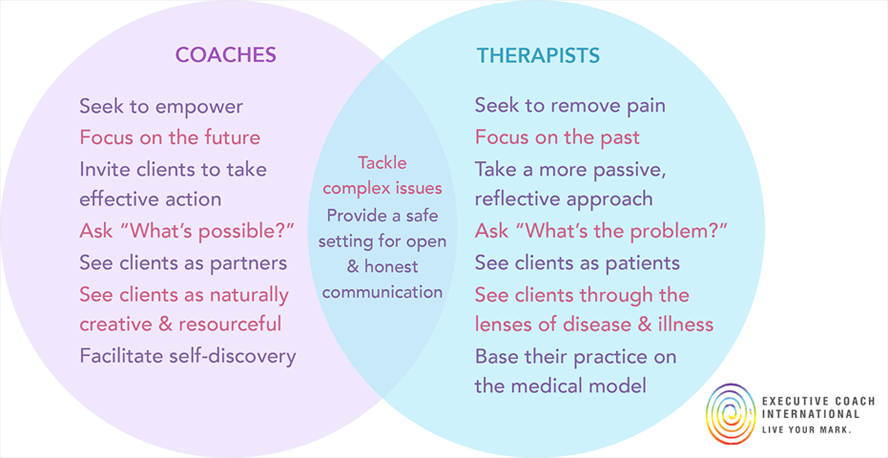 She was very anxious and would have mistaken my rejection of a gift, or even an analysis of the reason she gave it to me, for a deep rejection of her sincere impulses. So for a long time I did not attempt to explore the meaning of such behavior. However, my patient was able to recognize the fact that she was eager to bring me a bouquet at the very moment when she was especially angry with me. "I think they were actually flowers for your grave," she explained with a smile. As in this case, the therapist may not always choose to work with the exploration of the meaning of the gift at the time of receiving it. But remembering that a gift has a meaning, which can be far from gratitude, is important.
She was very anxious and would have mistaken my rejection of a gift, or even an analysis of the reason she gave it to me, for a deep rejection of her sincere impulses. So for a long time I did not attempt to explore the meaning of such behavior. However, my patient was able to recognize the fact that she was eager to bring me a bouquet at the very moment when she was especially angry with me. "I think they were actually flowers for your grave," she explained with a smile. As in this case, the therapist may not always choose to work with the exploration of the meaning of the gift at the time of receiving it. But remembering that a gift has a meaning, which can be far from gratitude, is important.
True gratitude can be expressed in a gift: when there are results in the therapeutic life, when they are obvious to both the client and the therapist. Then it is easy to give and easy to take. Such a gift can be - a gift-word, flowers, a book or something else. Such a gift is sometimes a point in a therapeutic relationship. The expressed gratitude, which begins, continues in the lives of both, experiencing therapy in time. And then a lot happens due to what happened, was resolved in the therapeutic relationship. Gratitude is a gift. She lives after therapy in the client's life. Lives in greater health or more humble disease. He lives thanks to others: relatives and neighbors.
The expressed gratitude, which begins, continues in the lives of both, experiencing therapy in time. And then a lot happens due to what happened, was resolved in the therapeutic relationship. Gratitude is a gift. She lives after therapy in the client's life. Lives in greater health or more humble disease. He lives thanks to others: relatives and neighbors.
Sometimes it happens that a client, some time after the meeting, begins to share what is happening to him. Maria turned to therapy due to frequent low mood, reaching the point of experiencing hopelessness and despair. Although we had good contact and trust on the part of the client, Maria did not immediately accept the need for therapy to turn to the experience of her mother's death. In reality, this event was tabooed: not to talk about the loss with loved ones, try not to show your tears. And although the period of depressed mood lasted about a year, which coincided with the departure of her mother, Maria did not want to admit this obvious connection.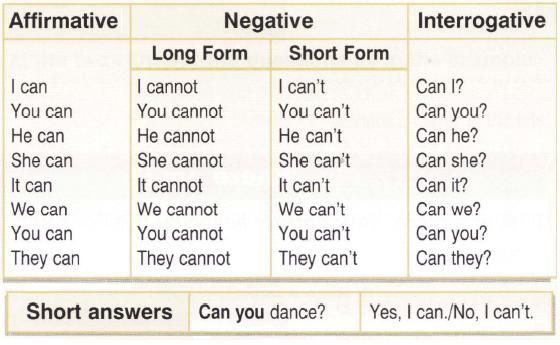 Nevertheless, walking in circles, we returned to the main thing. And after the meeting with the experience of loss, a letter of gratitude.
Nevertheless, walking in circles, we returned to the main thing. And after the meeting with the experience of loss, a letter of gratitude.
“Tatyana Nikolaevna, thank you very much, you have no idea how relieved it is. I now began to understand what an "artist's vision" is and why they draw the same things in different ways. Mom dreamed, we hugged her like that. Although my eyes are still wet, as I remember it, it is still easier. How the abscess opened up (not without your participation). I'm coming to life."
Or a letter from the same client a little later about how our meetings “sprouted” into a relationship with her son. “There is also peace in my soul. Then, in my spare time, I thought about how many years I still have to live. And I came to the conclusion that I am not eternal. The fact that she lived for 40 years and always looked ahead somewhere, did not notice today. How many of these are left today? Maybe 20-40 years? And somehow it turned out by itself that every day became a small life for me. I like it when I feel like this - calm. And one more thing - after all, if I don't exist, the world will not turn upside down, and all my future descendants, one way or another, will have to live without me. What I can? To live the way I would like my children to live. Do not pester them, what is possible, what is impossible, but let them try to figure it out for themselves. I warmly and naturally accept Mary's gratitude. And I can’t help but notice the gratitude that is experienced as a force coming from me. Gratitude to Mary for her "revival", for the jointness that took place, which brought new colors into her life. Thanks to my teachers and colleagues with whom I live in this profession.
I like it when I feel like this - calm. And one more thing - after all, if I don't exist, the world will not turn upside down, and all my future descendants, one way or another, will have to live without me. What I can? To live the way I would like my children to live. Do not pester them, what is possible, what is impossible, but let them try to figure it out for themselves. I warmly and naturally accept Mary's gratitude. And I can’t help but notice the gratitude that is experienced as a force coming from me. Gratitude to Mary for her "revival", for the jointness that took place, which brought new colors into her life. Thanks to my teachers and colleagues with whom I live in this profession.
“Thank you. Save God. God save you,” the old woman, who received alms from us, tells us. Saying “thank you”, we can also ask for our salvation, wish for it. And although “thank you” has become a template, a little realized wish, nevertheless, it’s not so bad that this word often sounds in our speech. It is important that there is a chance, an opportunity at some point to realize its meaning and essence.
It is important that there is a chance, an opportunity at some point to realize its meaning and essence.
With one of the clients, the therapy ended, at first glance, not in the best way. He showed capricious exactingness, I - principled obstinacy. Therefore, the work, which continued once a week for two and a half years, ended with only a telephone conversation, and not a period of at least 10 meetings. But for 2 years now, on some holidays and on my birthdays, I have received congratulatory messages from him, in which the word “thank you” is constantly present. Thanks for that"? Can this “thank you” be attributed to this reactive completion as well? Or just what happened before him? Among the many feelings that I notice in myself when I receive such messages from him, there is also dissatisfaction with myself, with our abrupt termination of relations. On the other hand, there is also trust in everything that happened. I can assume that for this particular client such a termination could be useful and even therapeutic.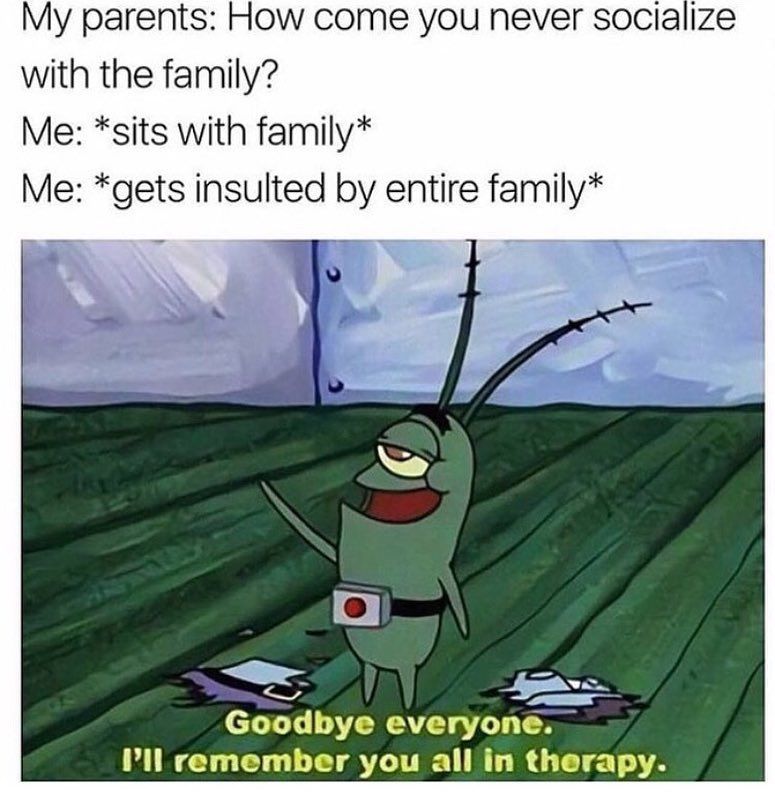 Perhaps it was my firmness that helped him decide to show, to materialize the independence and courage that had already arisen inside him to be without a therapist. I take this customer's "thank you" as a real thank you. At the same time, through this “thank you”, I experience the evidence of my imperfection, including professional ones. And thanks to this experience, "thank you" is transformed into "God save you."
Perhaps it was my firmness that helped him decide to show, to materialize the independence and courage that had already arisen inside him to be without a therapist. I take this customer's "thank you" as a real thank you. At the same time, through this “thank you”, I experience the evidence of my imperfection, including professional ones. And thanks to this experience, "thank you" is transformed into "God save you."
What can a therapist be grateful for in a difficult, "ungrateful" client? For my experience with him. For the failures that he learns to endure thanks to the ingratitude of the client. An ungrateful client may bring us back to earth, indicating that our ability to help is limited.
The ingratitude of the client or our ingratitude, suddenly realized, reminds us that we are all doomed to be ungrateful in eternity, but it is important to strive to be grateful.
References:
1. The Big Book of Aphorisms, compiled by Konstantin Dushenko, Eksmo-Press, 2001
2. Nancy McWilliams, Psychoanalytic Diagnostics, Moscow, Klass, 2004
Nancy McWilliams, Psychoanalytic Diagnostics, Moscow, Klass, 2004
3. Ivan Ilyin “The Book of Hopes and Consolations”, Moscow, “Apostle of Faith”, 2006
4. Vladimir Yankelevich “Irony. Forgiveness”, Moscow, “Respublika”, 2004.
5. Psychotherapy with life. The Intensive Therapeutic Life of Alexander Aleksejczyk, compiled by Rimantas Kociunas, Vilnius, 2008
The article was published in the journal of the Eastern European Association for Existential Therapy "EXISTENTIA: psychology and psychotherapy" 1/2010 (3)
Tatyana Nikolaevna Ivanova - psychologist of the highest qualification category, existential psychotherapist, therapist and supervisor of the Institute of Existential and Humanistic Therapy ( Lithuania), President of the Eastern European Association for Existential Therapy. Creator and director of the educational and consulting center "Baino" (founded in 2000 in Ivanovo), founder and president of the regional public organization "Association of Practical Psychology" (founded in 2005), whose activities are aimed at creating a professional community of practical psychologists in Ivanovo and the Ivanovo region.
Has permanent psychotherapeutic practice (individual and family counseling) in Ivanovo and Moscow.
Conducts therapeutic and educational groups, individual supervision.
Source
"A person lives the life he has decided on"
Good afternoon, dear friends! Again, under the Silver Rain, the program "Invited Guest" and I, its host, Yulia Goldenberg. Today our guest is a psychologist-consultant of the Health 365 clinic Evgenia Erofeeva. Good evening, Evgenia! I recently read one of your articles. It's called "Life in an Age of Change". A very relevant topic. What, from the point of view of a psychologist, does a person face in an era of change? How much more people may be turning to a psychologist in the last few months?
- In general, by the era of change, when I wrote this article, I meant not only this year, but also the last three years that we live, starting from the 20th year, with serious changes on the entire planet, with all us.
Do you mean pandemic?
- Yes, a pandemic. The mood of people has changed a lot, their condition has changed, because the 20th and 21st years were very difficult, many were sick. Many relatives have died. Many patients dealt with the topic of grief, loss, loss. Someone had been ill himself and then applied, because it was hard to be in the hospital and not know what would happen to you. You die, you don't die. At the same time, everything was generally incomprehensible, now it has somehow become easier, stabilized. With this topic, many addressed and still come.
You mean post-traumatic shock?
- Yes.
How long can therapy last in this case?
- Depends on the person. If someone has lost loved ones... I had one patient, her mother and father died at the same time, within 10 days. Both of them fell ill, and they were young, healthy, a little over 60, they were engaged in business. Actually no one expected. And within 10 days they both died. And so she turned to me. When a shock happens to you, it is very difficult to work on problems right away. All I could do was give some support. We just drank tea, coffee together, talked about some philosophical things. And deep work will go somewhere in a year, maybe in two. When it subsides, the shock will go away. When it will be possible to talk about something.
And so she turned to me. When a shock happens to you, it is very difficult to work on problems right away. All I could do was give some support. We just drank tea, coffee together, talked about some philosophical things. And deep work will go somewhere in a year, maybe in two. When it subsides, the shock will go away. When it will be possible to talk about something.
This kind of injury is probably a long time?
- Of course. We never talk about some short-term therapy. As soon as a person comes, he needs to speak out, to be heard, understood, to cry. But then there will be a long psychological work.
Do men turn to you, because the story with men is that they generally do not like to go to the doctor, as a rule? And, in particular, they absolutely do not like to go to psychologists, as it seems to me. They have traditional methods of relieving stress and solving problems: meet friends and have a drink, or drink alone.
- Yes, men come.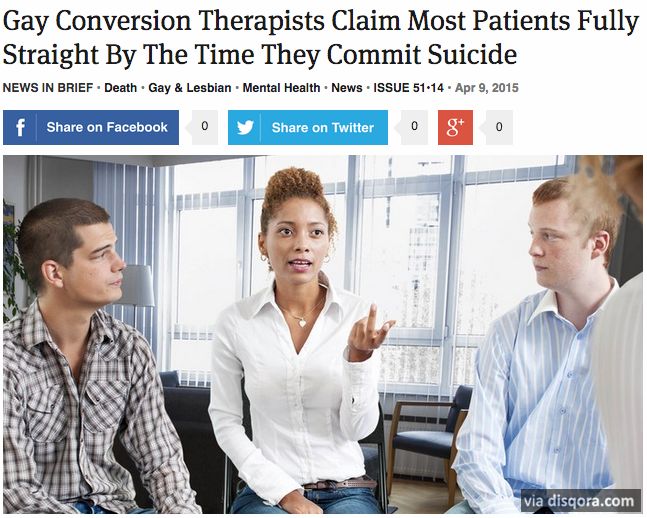 But the majority of patients are still women. It all comes from our stereotypes, from the way our men are brought up: “you must”, “you can’t roar”, “you can’t complain”. In general, nothing is impossible. By and large, the entire emotional sphere remains closed for men. A man must always be so "reinforced concrete", constantly protect someone, fight dragons. And to be weak yourself, to complain - this is not customary with us. That's why we have so many early deaths, that's why men die of heart attacks. Because the heart is one.
But the majority of patients are still women. It all comes from our stereotypes, from the way our men are brought up: “you must”, “you can’t roar”, “you can’t complain”. In general, nothing is impossible. By and large, the entire emotional sphere remains closed for men. A man must always be so "reinforced concrete", constantly protect someone, fight dragons. And to be weak yourself, to complain - this is not customary with us. That's why we have so many early deaths, that's why men die of heart attacks. Because the heart is one.
And not iron.
- Fortunately!
Now we can at least call men again if necessary to seek help.
- Of course, don't be afraid, don't be shy. This is a completely natural process that will help prolong your health.
And life. And not only to prolong, to facilitate it. Evgenia, please tell us why you became a psychologist? You know, as a rule, they say that there is such a craze that people go to psychologists who themselves, as they say, have a lot of cockroaches in their heads. Go to solve their problems in the process. What can you say?
Go to solve their problems in the process. What can you say?
- There's something to it. There is an expression that one does not become a psychologist from a good life. In fact, everyone has a lot of cockroaches in their heads. But only a few dare to go and start working on these cockroaches. And of these units, still a few remain in the profession and begin to help. Because, in fact, this work is quite difficult, hard. No one comes with sweets and flowers. Everyone comes with their own grief, with negative emotions, events, illnesses. And I'm helping, wasting my time. This is my job and that I am ready to take on some of these problems and help to "digest", including emotionally, these issues. So how did I come? I used to be an ordinary person, my first education is financial, I am a financier. The first years after graduation, I worked in the civil service, but in parallel with this, I always loved to travel, I studied foreign languages. I speak English, Italian, Spanish.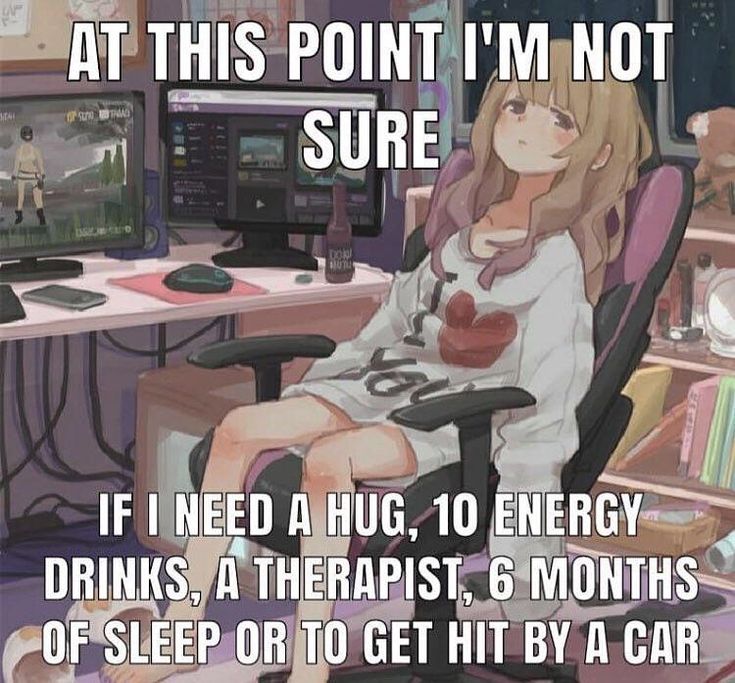
Amazing! What kind of psychologists do we have?
- I traveled a lot and one fine day I thought: why do I work at one job and do another? Why don't I open my own travel agency? And I opened a company and for 10 years I was engaged in tourism. At the same time, I also had such a project: I brought here to us, in Yekaterinburg, my Italian friends, they are musicians, among them is an amazing composer. I love them and brought them to us, organized concerts at EverJazz, at the Youth Palace, at the House of Officers. That is, I generally lived a completely different life until 2016, until I had a personality crisis, so to speak.
But actually, I remember, I think I was just born that way. Because even when I was 4-5 years old, I remember it very well, I often sat at home, for example, in my room, looked somewhere, peering into the sky, and thought: why am I hanging around here? Why am I here on Earth? Why do I have these parents? Why is it all happening like this? How it is? Why? That is, I had these questions from somewhere in my head from childhood, they didn’t let me live in peace, they forced me to change appearances, passwords, addresses, classes.
Apparently, by the age of 36, this set of questions is so overdue, plus in my life there have been big changes, and my perception of myself has completely changed: who am I, what am I. And I decided for myself that until I find out who I am, what I am, for what and why this is all happening to me, I will not move further. Therefore, I took up my therapy, I simultaneously studied here in Yekaterinburg with five specialists: this is psychoanalysis, and body therapy, and group classes, and so on. I also traveled repeatedly to seminars, groups in Moscow, St. Petersburg, Kazan, Chelyabinsk, and visited them in Yekaterinburg. Then I lived in Greece for a month, where we studied theory and practiced. And by the end of 2017, they let me go, as they say. That is, I understood, I received answers to all my questions.
Why are you here, it suddenly became clear?
- Yes!
There was an insight, what is called?
- Yes, after that I decided to go deeper, I went to study psychology: how it works, how a person works. Yes, I understood this on my own skin, from my own experience, but now it has become clear to me even more how this system works. That's why I started working with people as a specialist - as an expert, as a psychologist - and in parallel, I now continue to study further.
Yes, I understood this on my own skin, from my own experience, but now it has become clear to me even more how this system works. That's why I started working with people as a specialist - as an expert, as a psychologist - and in parallel, I now continue to study further.
By the way, I noticed that you have such a solid number of various seminars listed in your resume. For example, I was very interested in the seminar on the application of shamanic practices in working with people “The Way of the Spirit”. Can you really use them? Do you use shamanic practices in your work with your patients?
- Well, by and large, everything I do is how shamans perceive the world. For example, a person comes to a shaman and says that he has some kind of illness, or something is not going well in life, some kind of series of events is so negative. Then the shaman uses his ability to enter a trance and plunges into the "lower" world. The fact is that shamans believe that if a person is sick, then evil spirits take a part of the soul and keep it somewhere in the underworld. Therefore, the shaman descends to the "lower" world, fights with these spirits, takes this part of the soul, brings it back to our world, and now the person recovers.
Therefore, the shaman descends to the "lower" world, fights with these spirits, takes this part of the soul, brings it back to our world, and now the person recovers.
It turns out that I, as a psychologist, do the same job. The patient came to me with some problem, and my task is to find those dark spots, those blind spots that he does not see, and integrate them back. Because when, for example, some kind of shock, painful situations happen to a child, there is a kind of freezing. That is, a part of the psyche is frozen and somewhere it remains to sit in a corner. My goal is to return it, integrate it and somehow help a person continue to live a normal life.
Evgenia, I am amazed at how much you have gone through in your life, learned about so many things from your own experience, worked in different places. In general, you advise patients with every right, and I'm sure you help them a lot. I also know that psychologists are engaged in unlocking the potential. A huge number of people have problems with this. Again, in your article it is said that many people reveal the potential of 20 percent in their whole life. And now you say that the so-called background worldview, that is, in fact, stereotypes, is often to blame. In a nutshell, can you tell how to deal with them? We all have them, these same stereotypes. So this is how to change the mindset from the world, that there are only scammers around, to the fact that the world is a beautiful place? In this world, there are a lot of pleasant surprises for me. Especially now, when the world is not really such a safe and beautiful place.
Again, in your article it is said that many people reveal the potential of 20 percent in their whole life. And now you say that the so-called background worldview, that is, in fact, stereotypes, is often to blame. In a nutshell, can you tell how to deal with them? We all have them, these same stereotypes. So this is how to change the mindset from the world, that there are only scammers around, to the fact that the world is a beautiful place? In this world, there are a lot of pleasant surprises for me. Especially now, when the world is not really such a safe and beautiful place.
- Let's start with the fact that in order to change something, you first need to understand where you are. That is, to begin with, a person must see what is given to him. And here, unfortunately, people live, let's say, external. They look "out" all the time. And they perceive themselves not as who they really are, but as those around them think about them. But this is the general background in our country. Our grandmothers, great-grandmothers, even mothers, perhaps, though to a lesser extent, said: "Don't laugh, you will cry." “We didn’t live richly, there’s nothing to start.”
Our grandmothers, great-grandmothers, even mothers, perhaps, though to a lesser extent, said: "Don't laugh, you will cry." “We didn’t live richly, there’s nothing to start.”
Yes, we always have many such negative statements.
- For some reason, when people try to change something on the external level, this is especially felt. It is one thing to be, and another thing to seem. So, in order to change reality, in order not to seem, but to really begin to be, you must first see who you really are.
How easy is it to meet yourself?
- I can say that meeting with yourself is always unpleasant.
It is always unpleasant to learn some truth about yourself.
- Of course. We are all people. Maybe you have read somewhere or have a general idea: what a person knows about himself, this is the personality. For example, my name is Zhenya. I work here, I have this and that: first, second, third. But the human psyche is much deeper: a person has a shadow part, this is everything that he does not want to know about himself, does not want to see, does not want to accept. That is, “this is definitely not me.” This is the shadow part. Then every woman has what we call the "inner man", that is, the male part. If we go even deeper, there is already a level of the collective unconscious, something that affects us.
That is, “this is definitely not me.” This is the shadow part. Then every woman has what we call the "inner man", that is, the male part. If we go even deeper, there is already a level of the collective unconscious, something that affects us.
That is, what is not us.
- True, although it is, of course, by and large. But here's a person, she perceives herself only as a surface, and not as a body. And in order to change these deep settings, you must first go inside. If we work only with something external, change clothes or change the image, this, of course, will help to some extent. But if you have a dragon sitting there inside, then you can’t remove this dragon with a pink dress. It will still be read, it will still “glow”, it will still influence your life.
Well, this is the question, that there are all sorts of different women's trainings like "How to become a Vedic woman." Or there "How to become a woman in 7 days."
- Well, yes, now there are a lot of such offers on the Internet.
How realistic is this at all?
- This, of course, can be partially corrected at the external level: you will be dressed up, put on make-up, put on a beautiful long skirt and walk around in it. But the whole truth of life is that all external events are formed from within. That is, not someone for me, there Vasya, a nasty neighbor, got caught and spoils life. Or my boss is an idiot, he annoys me. No, everything comes from within, which means that somewhere you need to look inside yourself for this Vasya or this boss.
It turns out that I myself attracted such a boss to me.
- Yes, we attract everything according to our inner content.
Doesn't this mean that here you can already go to the opposite extreme, when a girl walks in a miniskirt and something bad happened to her, then they say to her: “It's her own fault. And why did you go in a miniskirt? It seems to me that in Russia people very often slip into this kind of thing.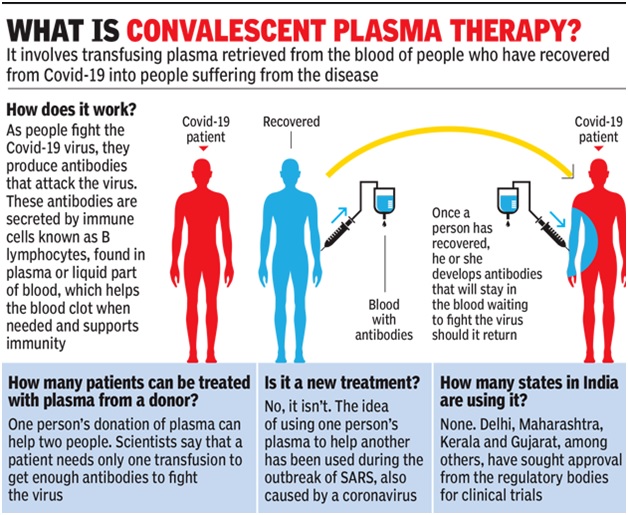
- Well, of course, blaming is the easiest thing. But we are now talking about those people who go to therapy, who are ready, but they doubt what will happen to them there, what will be done to them there. For some reason, we have an opinion that a psychologist is such an uncle who has read a bunch of smart books, he is so pumped up, fearless. He's just superman, who generally tears everything right and left. But in fact, a psychologist is exactly the same person. We live life in the same way, we face fears, pain and some unpleasant events in the same way.
Yes, they still continue to occur in my life, it's another matter that I now have the techniques of self-regulation. I know how to fix it quickly. It happens that a patient comes to me in some difficult situation, is afraid of something, for example. We can work with him, and already quite quickly, in one session, he will leave in a more or less balanced state.
Therefore, do not be afraid, do not think that a psychologist is some kind of superman and he will teach you something. The only thing I can do is help you connect with yourself, stop being afraid of yourself, the way you really are. That is, help to see, because we can change something only after we see it.
The only thing I can do is help you connect with yourself, stop being afraid of yourself, the way you really are. That is, help to see, because we can change something only after we see it.
If I see this blind spot in myself, I haven't seen it for 30 years, but I came to a psychologist, and I managed to get to the bottom of something, then life really begins to change, a completely new series of events appears. A new inner state, a new sense of self. And it comes from within, and not invented from the head, not “twisted”. Something inside you clicked, and then this natural state will remain forever, it will not go anywhere.
How much time does a person usually need, or is it all individual? Time to come to this discovery of yourself.
- This is, of course, individual. People come with different requests: someone has a problem at the moment, he cannot solve it. Then a few sessions are enough: a person speaks, everything becomes clear to him, and he moves on.
Moreover, I note that the psychologist does not give advice, in no case is he engaged in this.
- Yes, I can, for example, tell about myself, but I don't give advice.
Evgenia, I want to know something else. There is such a thing as self-esteem. I know that you also wrote about him in your articles. This is a very relative concept, it turns out. When a person lives on a desert island, he does not need self-esteem. And if he lives among people, then it inevitably exists and affects his life. And I, just from my point of view, believe that an overestimated self-esteem is a better option than an underestimated one. Can going to a competent psychologist increase self-esteem?
- Let's think about what the word "self-assessment" actually means. It implies that I somehow evaluate myself. But it usually turns out that, as I have already said, a person is a creature that perceives itself from the outside. Usually a person does not see himself in any way, he does not self-evaluate himself. A person always sees himself as if through the eyes of others. And we all come from childhood, we all come from school, from a different life experience, and it turns out that this is how we evaluate ourselves, who we consider ourselves to be, this is not self-esteem, but this is some kind of opinion formed from the opinions of different people.
A person always sees himself as if through the eyes of others. And we all come from childhood, we all come from school, from a different life experience, and it turns out that this is how we evaluate ourselves, who we consider ourselves to be, this is not self-esteem, but this is some kind of opinion formed from the opinions of different people.
Sum of judgments.
- Right. The way your mom looked at you, the way your dad looked at you. It is not necessary for a child to be told some things. They look at him, and he is already learning to perceive himself through these people. And, of course, going to a psychologist first of all will help to see where I evaluate myself, and where it was someone who once appreciated me, and the assessment was recorded inside me.
And so I live 30-40-50 years and still think: “No, this is not for me. Performing on stage is not for me, I'm like a bear. And a person deliberately somehow remains in his hole ...
- And he lives such a life. There is an expression: "A person lives the life that he decided on, and not the one he deserves." The psyche is so arranged that a person sees exactly what is in his picture of the world. If we take the two of us now and show the same picture, or we look at the studio, then each of us will describe it differently, each will see his own. In the same way, we walk every day in the same city, but everyone sees his own in it and exactly as much as he is ready to see. The problem is that people are not even that they do not want, many are not even ready to change. They are comfortable living on these 20% of life. But here I know everything. Here I am already sure that here is work-home, TV, beer on weekends.
There is an expression: "A person lives the life that he decided on, and not the one he deserves." The psyche is so arranged that a person sees exactly what is in his picture of the world. If we take the two of us now and show the same picture, or we look at the studio, then each of us will describe it differently, each will see his own. In the same way, we walk every day in the same city, but everyone sees his own in it and exactly as much as he is ready to see. The problem is that people are not even that they do not want, many are not even ready to change. They are comfortable living on these 20% of life. But here I know everything. Here I am already sure that here is work-home, TV, beer on weekends.
Basically, it is the fear of stepping out of your comfort zone.
- Yes, the fear of seeing myself: what else can I do. After all, this is also our shadow part: not only everything bad, negative, but also our strength goes into the shadows. For example, a boy was born a creative person - a new Van Gogh in his soul or a wonderful composer. And he was forbidden to do this all the time in childhood. Mom was tough, a math teacher. She told him: “If you become a mathematician, that’s all!” And in a person, all his creative part has gone into the shadows. And, it turns out, he does not live his life, but the life of his mother or another close person who told him how to live “correctly”. And the shadow doesn’t go anywhere, it still “phonites” - 10 years, 20 years, 30 years. Then the person develops gastritis.
And he was forbidden to do this all the time in childhood. Mom was tough, a math teacher. She told him: “If you become a mathematician, that’s all!” And in a person, all his creative part has gone into the shadows. And, it turns out, he does not live his life, but the life of his mother or another close person who told him how to live “correctly”. And the shadow doesn’t go anywhere, it still “phonites” - 10 years, 20 years, 30 years. Then the person develops gastritis.
So everything goes into psychosomatics?
- Of course, all these chronic diseases are the consequences of something repressed, unrealized. All emotions do not go anywhere, they are constantly stored, “flash”, and then result in some kind of illness.
It just occurred to me that just as we do daily oral hygiene, visit doctors periodically to check our health, it also makes sense - and in the West it has long been in the order of things - to undergo psychological hygiene.
- Of course, and I have patients who go once a week for 5 years - life goes on. Yes, initially he came with some acute problem, an injury, and we resolved this issue, worked it out. But life goes on, it brings new surprises and problems. And it’s easier to come and talk to a specialist than to carry it home, throw tantrums to your husband, break down, get nervous at work.
Yes, initially he came with some acute problem, an injury, and we resolved this issue, worked it out. But life goes on, it brings new surprises and problems. And it’s easier to come and talk to a specialist than to carry it home, throw tantrums to your husband, break down, get nervous at work.
Either complain endlessly to a friend on the phone, or, again, go for a drink of vodka to relax.
- Yes, it greatly improves the quality of life. A patient who regularly visits a psychologist develops skills over time, learns to independently regulate his condition.
Evgeniya, what can a person bring to a psychologist? For example, with what problem do you need to urgently go to a psychologist? In addition, of course, God forbid, what we started our conversation with today - post-COVID complications.
- If we are talking about diseases, then, in principle, we can start with anything: endocrinology, all gastrointestinal diseases, when a person digests something and cannot digest it in any way. Here, even a person who is not even initiated into psychology can assume that something is wrong, some unpleasant life situation has developed that he cannot cope with.
Here, even a person who is not even initiated into psychology can assume that something is wrong, some unpleasant life situation has developed that he cannot cope with.
In addition, of course, this is a depressive state, crises, stupor, when a person cannot make a decision and cannot understand where to go next. It can be, for example, professional burnout, including: here he was, everything seemed to be clear, and then - once, he understands that everything went wrong in the middle of his life. This is also called a midlife crisis.
These can be family issues: relationships with a husband or children, where something can also come to a standstill and not be resolved in any way. Therefore, the range of problems can be completely different. The only thing is, for some reason, it is difficult for people to decide to come. For some reason, they are afraid, they do not believe, they think: “Well, I have lived like this for 40 years and I will definitely live another 20 years.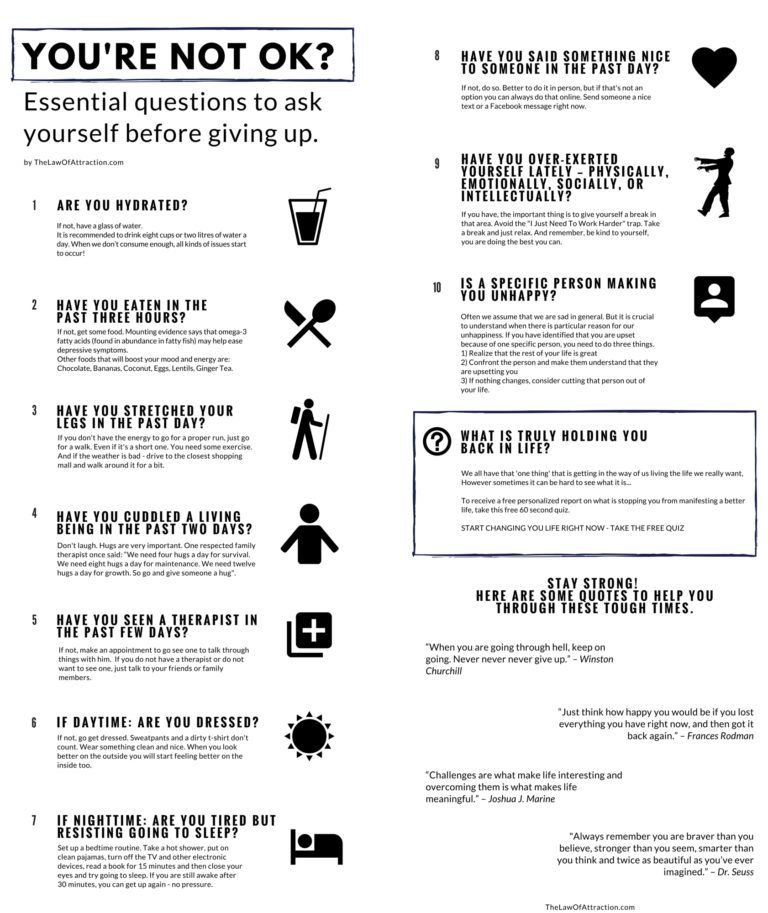 ”
”
That is, “I will talk about my problems and pay money for it.”
- Of course. So they think. But in fact, it gives a completely different quality of life, psychological counseling changes everything.
Evgenia, we discussed for a long time how to convince a person to go to a psychologist. And how to choose this same psychologist? Because this is also an important task: how to feel that this is a good specialist.
- I think that if a person makes an inner decision, he will attract the right psychologist. This can be compared to entering a university: even at the age of 18, at a fairly young age, you still roughly feel where you are interested, what you want to do. And it's the same with a psychologist. When you go for a consultation for the first time, there is no need to be afraid. We must go and try. And you will feel whether this person is yours or not. Are you comfortable talking to him or uncomfortable. Or you are pinched, or you want to run away. Or all at the same time.
Or all at the same time.
You have to make up your mind for the first time and come. No one is forcing you to go further. This is absolutely your decision. I always say that the person who reached me, who began to study his psychology, the study of himself, he is already a hero for me, he is already a winner. As soon as a person decides: "OK, I'm ready to go to be aware of all my inner parts" - it's already good.
Be aware of your inner demons.
- Yes, the demons there, in the shadow part, are generally fine. They are used to living there, they have the Internet there, the wallpapers are beautiful, the whiskey is good. Of course, they will give their person a lot of advice, a lot of opinions will be expressed. In the head, this internal dialogue begins: why you shouldn’t walk, why not today, but tomorrow. “And then the New Year, and ten days of holidays. Let's wait these ten days, and then let's wait a little more. And in general, everything is not so bad. I bought vacation tickets - we will last another 3 months.
I bought vacation tickets - we will last another 3 months.
It turns out that the patient still comes, but he goes through a very long way of this inner torment, doubt, struggle with his demons. But it is easier to take the first step, not to be afraid, but to come and talk. I have already said that a psychologist is the same person. We are no different from our patients. The only thing is that we have the techniques, knowledge of how the psyche works, how a person works. And I understand how I can help, that I can suggest what I can do for the patient now.
And helping is simply a radical improvement in many cases in the quality of life, right? People who come with fears, with depression, they somehow live. But in fact, they just keep afloat.
- Yes, the task is to barely hold on, to live this day from morning to evening. Many more, for example, begin to suppress the same depressive state with pills.
Is this bad?
- I won't say for sure if this is good or bad. A person decides for himself what is acceptable for him. Maybe someone is good from them. But I believe that the psyche contains everything necessary, and a person has all the power and all the resources. The only thing is that he cannot always take them, because someone once forbade him to do this. He set boundaries, and that's it - a person cannot take his strength. Here he is handsome, brave, dexterous, skillful, but inside he considers himself a nonentity. But I can give him this power. Become this mother, which he did not have at the right time. He had a domineering mother who repressed, and I can become different. The psyche continues to work in exactly the same way, the person still absorbs from the outside. But now he begins to see himself as a new person, begins to see himself with loving, accepting eyes. Begins to understand that if a man burst into tears, this is normal. It's okay to feel, it's okay to be alive, it's okay to love.
A person decides for himself what is acceptable for him. Maybe someone is good from them. But I believe that the psyche contains everything necessary, and a person has all the power and all the resources. The only thing is that he cannot always take them, because someone once forbade him to do this. He set boundaries, and that's it - a person cannot take his strength. Here he is handsome, brave, dexterous, skillful, but inside he considers himself a nonentity. But I can give him this power. Become this mother, which he did not have at the right time. He had a domineering mother who repressed, and I can become different. The psyche continues to work in exactly the same way, the person still absorbs from the outside. But now he begins to see himself as a new person, begins to see himself with loving, accepting eyes. Begins to understand that if a man burst into tears, this is normal. It's okay to feel, it's okay to be alive, it's okay to love.
All of us, both men and women, are no different emotionally. It is normal for all of us to be alive, and I always want to convey this to people. That it's okay to be yourself, that you don't have to be afraid. Only after you have accepted yourself as you are, can you grow someone new in yourself.
It is normal for all of us to be alive, and I always want to convey this to people. That it's okay to be yourself, that you don't have to be afraid. Only after you have accepted yourself as you are, can you grow someone new in yourself.
Evgenia, I have a question about our era of change: how can you improve your mood? Yes, this era can allow a person to feel his strength, but, on the other hand, we all have a lack of serotonin now due to the pandemic and all the events. Naturally, this leaves its mark. But how to cheer up a little, how to cheer up before going to a psychologist? Do you have any practical advice?
- The simplest advice I could give is to spend more time in nature. It is still summer, August-September promise to be warm. You need to walk more, including barefoot on the ground. Because people in modern society are already cut off from the outside world, and also, being always on TV or on the phone, constantly listening to music on headphones, we clog all our perception channels to the maximum. We score with everything we can, in order not to feel.
We score with everything we can, in order not to feel.
But, just the opposite, in order to alleviate inner anxiety, fear that live in the legs, I would recommend walking, walking barefoot. Try to just walk on the grass, smell the smell, hear the crickets, see the butterflies on the flowers. That is, to do very simple things that will help connect with the earth. To connect with some ancient, primitive state, when so much information has not yet piled on us from different sides. Perhaps this is one of the simplest and most effective ways to return yourself. In general, it is useful with some periodicity to go out into nature, for a walk. So, while summer is the opportunity to just walk around barefoot, take a walk, I highly recommend that you do this.
Today we are discussing that it is very important and useful to go to a psychologist. That a psychologist treats a person like a loving mother and accepts him for who the patient really is. And from this feeling alone, it seems to me, life is already becoming easier and more fun?
- Yes, the patient came once, relaxed, the second time, and then this skill is already fixed in him, and he behaves in the same way in the family.
By the way, patients often come with the following question: “My husband doesn't want to go to a psychologist, that's how he is. But here I come, I’m done!” I tell her, “Well, okay. But this worries you, so let's work with you." We start working with this woman, and the family is always a system. Let, for example, these are two people - a husband and a wife. Or have children. And if one member of the system changes, the whole family inevitably changes. Whether they want it or not, they change anyway.
If one parent begins to look at himself with different eyes (we have already talked about self-esteem), his inner attitudes begin to change, and children are brought up differently. After all, this person begins to look at his children with different eyes. It's a chain: it seems like I'm doing this for myself, but this chain is very long.
A person sometimes thinks: “Well, what am I? I'm small, a bug-cockroach. But in fact, very, very much depends on him, his entire environment.



